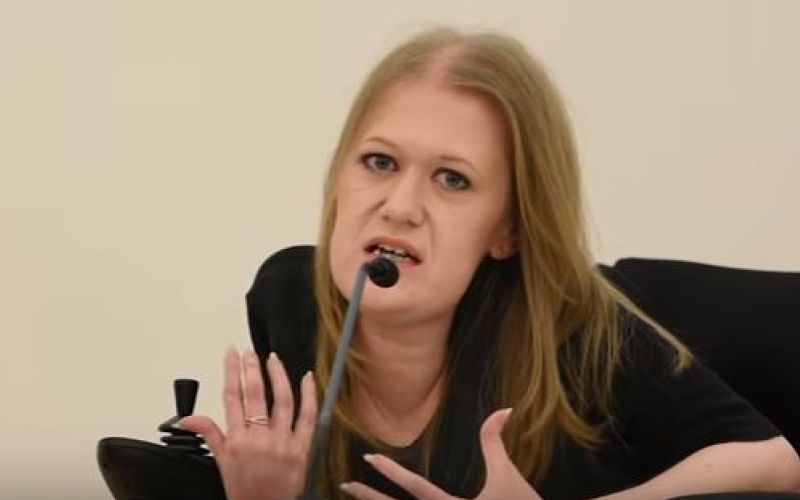Disabled women have raised concerns about a new bill that would equalise the time limit for abortions for disabled and non-disabled foetuses.
The private member’s bill has been brought forward by the disabled Tory peer Lord [Kevin] Shinkwin.
He told Disability News Service (DNS) this week that his abortion (disability equality) bill would send a powerful message that society, and the government, believe in equality for all disabled people, both before and after birth.
At present, it is legal under the 1967 Abortion Act to abort a foetus right up to the point of birth, where [in the act’s words] “there is a substantial risk that if the child were born it would suffer from such physical or mental abnormalities as to be seriously handicapped”.
But his efforts to change the law have provoked substantial opposition, including from the British Pregnancy Advisory Service (bpas).
This week, bpas published a report summarising discussions that took place at a workshop on disability and reproductive rights, which it organised alongside the Royal College of Obstetricians and Gynaecologists (RCOG).
The workshop, on 27 June, heard that the concerns and needs of disabled women were almost always ignored in discussions about reproductive and sexual rights.
The disabled political journalist Dr Frances Ryan (pictured) said this meant that disability was often only mentioned when discussing reproductive rights in the context of the law on abortion and disabled foetuses.
Ryan told DNS yesterday (Wednesday) that she opposed Lord Shinkwin’s bill and that “any progress made in disability rights should never be off the back of women’s”.
She said: “I’m worried about any measure that restricts women’s personal choices about what’s best for their own bodies and families.
“No woman choosing to abort a foetus after the 24-week stage is making that decision lightly.
“Forcing a woman to bring to term a disabled foetus against her will is not the way to support disabled people.”
Eleanor Lisney, a founder member of the disabled women’s co-operative Sisters of Frida, who also spoke at the workshop, told DNS that Lord Shinkwin’s bill was “really problematic”, although she “would not come down hard on one side or the other”.
She said it was important that any woman faced with the choice of aborting a foetus with an impairment must have “all the facts” and be provided with the necessary information and support, as parents are often pressured into an abortion in such cases.
She said: “Thanks goodness I have never had to make that kind of decision.
“I really think it is not fair that disabled children should be aborted as a matter of course just because they are disabled.
“I believe in a woman’s right to choose, but also that she should get all the information about what she is getting into when she goes for an abortion.”
Ryan also told the workshop that disabled women often faced huge difficulties accessing information about appropriate and accessible methods of contraception, while disabled children often miss out on sex education.
And she said that disabled women were often viewed as a burden on the state, while the decision to have a disabled child was frequently viewed as selfish or a tragedy.
Ryan called for a cultural shift away from seeing disabled women as sexless and towards seeing disabled people as prospective parents, with respect for their reproductive choices and decisions.
The disabled artist Alison Lapper told the workshop of the obstacles she faced when bringing up her child, including twice being wrongly accused of neglect by social workers.
She told the workshop that disabled mothers were often viewed as inherently unfit, while she had experienced doctors, relatives and strangers repeatedly questioning her fitness to bring up a child.

 Disabled peers speak of ‘daily fight’ against access barriers in House of Lords
Disabled peers speak of ‘daily fight’ against access barriers in House of Lords Six disability campaigners tell MPs: Government’s benefit reforms are not fit for purpose
Six disability campaigners tell MPs: Government’s benefit reforms are not fit for purpose Disabled Tory peer tells MPs: DWP is ‘stuck in a time warp’
Disabled Tory peer tells MPs: DWP is ‘stuck in a time warp’